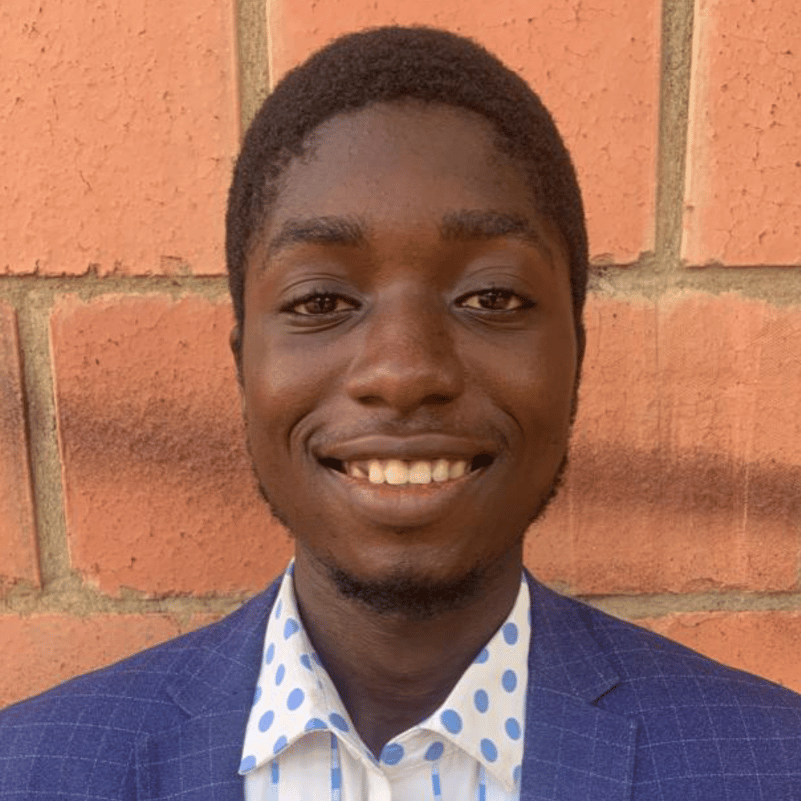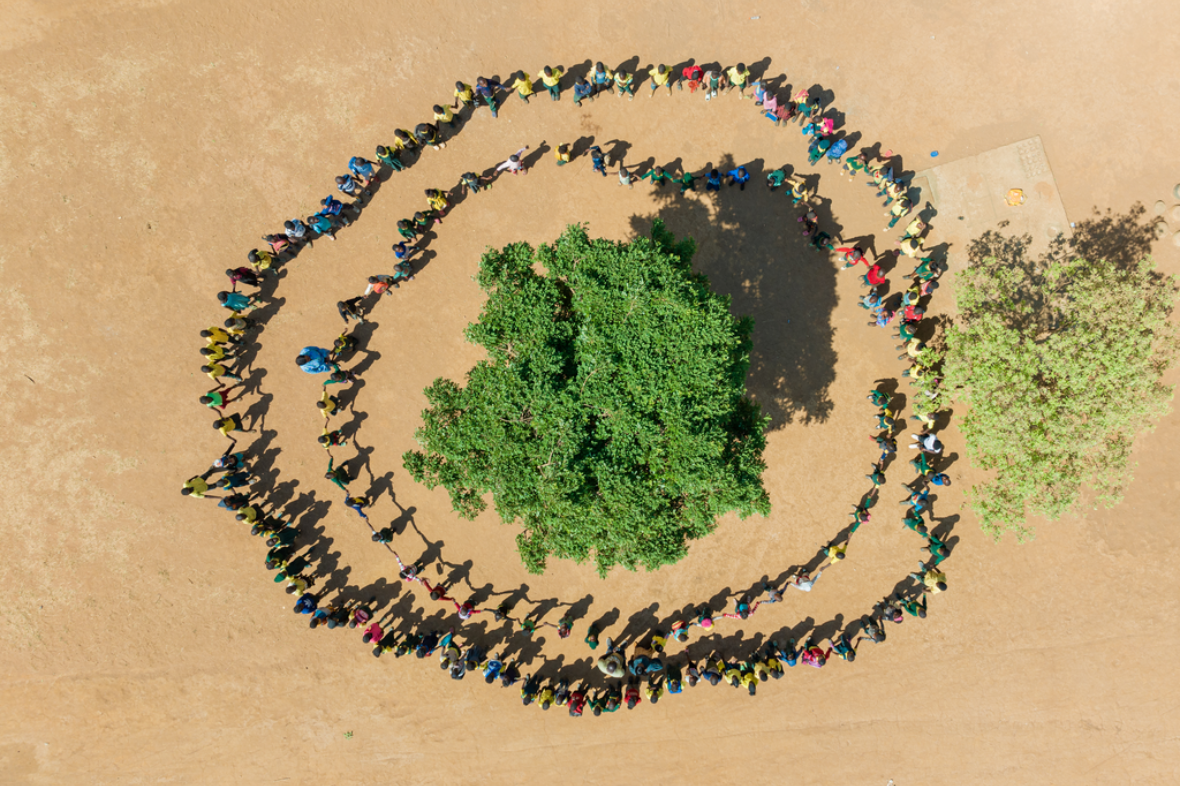
“I know firsthand the impact the environment has in early childhood”

In advance of COP28, Global Youth Ambassador Okikiolamilekan Bamgboye, 23,from Nigeria, shares his personal and moving call to world leaders to consider the impact of climate change on the youngest children.
Have you ever imagined what it feels like to watch helplessly as your future is threatened by countless risks that grow closer and closer to you every day?
This is exactly how 1 billion children are surviving today, scattered across nations where the effects of climate change are extremely likely to occur. A large number of them can do nothing about it. Why? They are less than five years old.
Early life, from zero to five, is critical for brain development because it establishes the groundwork for later health, education, social and emotional growth. More than 90% of a child’s brain develops during this period. Alongside genetics, their experiences during this time influence how their brain develops.
So imagine experiencing educational disruptions, displacements and climate change-induced diseases during this time. Imagine the effect that this would have on their future and, in turn, that of thousands to come.
I know firsthand the impact the environment has on childhood. For years, I watched my younger brother struggle to have a proper education under the overwhelming weight of chronic asthma from the age of two. Little did we suspect that this disease had been triggered by climate change-related air pollution in our local community. My parents were not enlightened enough to treat this disease early on. His untimely demise five years ago nearly broke our home.
This made me realize that it’s no lie that children under five are most impacted by climate change, especially those who live in developing countries. The physical health risks that climate change poses to these children are numerous and include extreme weather events, malnourishment and air pollution.
The World Health Organisation states that the risk of climate change-related deaths among children under the age of five is higher than that of any other age group. Additionally, UNICEF points out that almost 160 million children reside in areas with a high risk of flooding, putting them at risk for trauma, displacement, and interruptions to vital services.
It is heartbreaking to know that physical challenges most definitely do not end there, and that psychological effects pick up as well. Climate change-related anxiety and post-traumatic stress disorder (PTSD) may impede cognitive development and cause developmental delays among children. As a result, complications caused by climate change have significantly deleterious effects on the futures of many children. In particular, the education of a child during this crucial stage faces great risks of disruption if adequate attention is not paid and preventive measures are not taken to ensure its security.
Besides the numbers and statistics, it is incredibly urgent that addressing the nexus between climate change and early childhood development be recognised as pivotal to achieving sustainability and not just an area to be downplayed or overlooked.
Why is this?
Setting measures in place at this stage to safeguard the futures of the upcoming generation is a direct investment into sustainability. When considering the multifaceted global challenge that is climate change, significant focus must be placed on the early years. This rings particularly true if sustainable development truly is our united goal and vision.
Climate change is intricately connected to the Early Years and it’s high time we knew it.